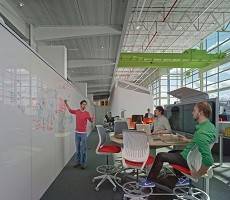December 8, 2014
ILM issues management guide to office Christmas party etiquette
 We’re well into the office Christmas party season and with it comes the usual management warnings; however, this one comes from the Institute of Leadership & Management (ILM) so it’s worth taking notice. A survey by ILM reveals some pretty predictable misdemeanours; including almost 9 out of 10 workers (87%) seeing colleagues drink too much and 48 per cent having gone to work with a hangover after their office party, but over a quarter (28%) also admit to having heard staff revealing their colleagues’ secrets. There are consequences of such indiscretion, with more than half the managers surveyed (51%) saying they would reprimand workers for being rude to each other, while 28 per cent would tell workers off for revealing their colleagues’ secrets. And keen to dodge the line of fire themselves; 41 per cent of managers would reprimand staff for shouting at the boss. (more…)
We’re well into the office Christmas party season and with it comes the usual management warnings; however, this one comes from the Institute of Leadership & Management (ILM) so it’s worth taking notice. A survey by ILM reveals some pretty predictable misdemeanours; including almost 9 out of 10 workers (87%) seeing colleagues drink too much and 48 per cent having gone to work with a hangover after their office party, but over a quarter (28%) also admit to having heard staff revealing their colleagues’ secrets. There are consequences of such indiscretion, with more than half the managers surveyed (51%) saying they would reprimand workers for being rude to each other, while 28 per cent would tell workers off for revealing their colleagues’ secrets. And keen to dodge the line of fire themselves; 41 per cent of managers would reprimand staff for shouting at the boss. (more…)






















June 24, 2014
The ties that bind facilities management with workplace design
by Mark Eltringham • Comment, Facilities management, Workplace design
(more…)